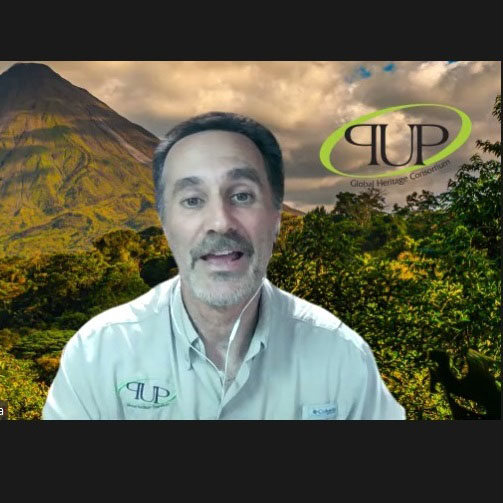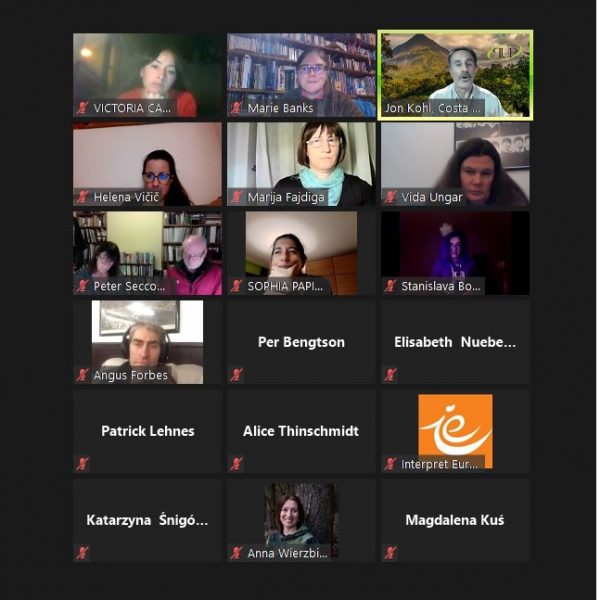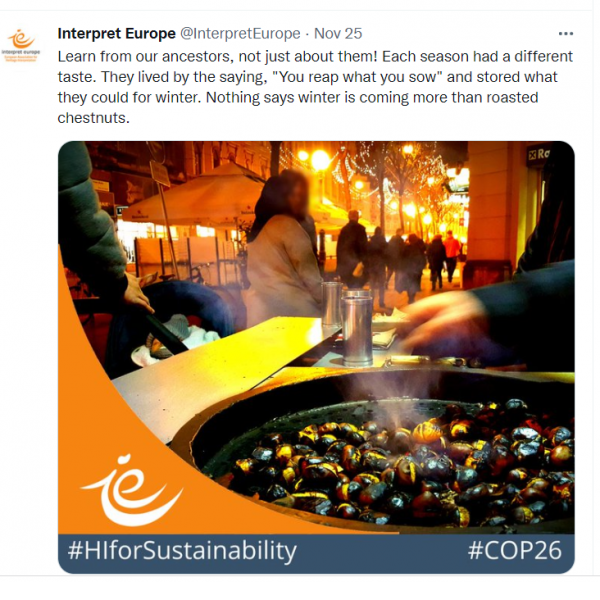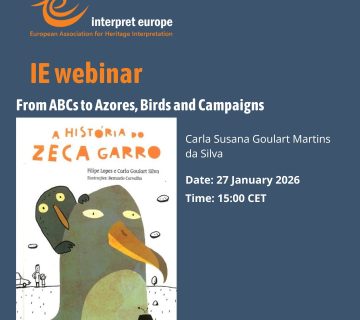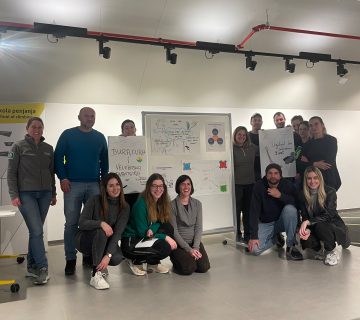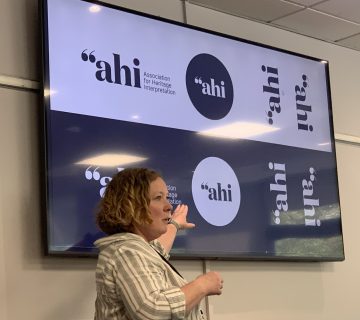Members were invited to think about how heritage interpretation could form a response to the global climate discussions at COP26 in Glasgow.
During and post COP26, held in Glasgow in November, Interpret Europe members have been using our online platforms to discuss and share how heritage interpretation could be a way to engage more people with the huge issues surrounding the climate chaos we are facing.
Social media: HI for sustainability
Long before we used plastic bags, people would craft carrying vessels from available local materials. Every household had at least one great seamstress who would ensure that the family’s clothing was fit to last and repaired again (and again) as necessary. The food we ate would follow the patterns of the changing seasons. Water power, wind power and horse power were not just the most sustainable form of energy, they were the only source of energy. What else can we learn (or remember) from our ancestors to help take us forward?
While all eyes were on COP26 and the decisions that will influence our future, we looked at the role of interpretation addressing sustainability for our planet. IE members shared some stories that showcase traditions, knowledge and skills of how people coexisted with nature in the past and who are maybe still using (or re-using) those skills today. They also shared smart solutions that Earth has of looking after itself – and us. The stories were shared with the hashtag #HIforsustainability alongside #COP26 and the text was edited for various platforms, including Facebook, LinkedIn and Twitter.
We can still add to this online campaign so send us in your great examples of #HIforsustainability and we’ll feature them: news@interpret-europe.net.
Thematic table: If not us, who?
On 1 December, IE’s Natural Heritage Team hosted a Thematic table: If not us, who? Using heritage interpretation to engage on climate issues.
With COP26 behind us and being aware of the huge work and efforts lying ahead of us all, members were invited to join online for a presentation and group discussion on how heritage interpretation can contribute to raising awareness, making people more mindful about our actions, and to consider what the reality is out there that we are facing.
Vida Ungar, IE’s Natural Heritage Coordinator, and members of the natural heritage team shared some key points from the Climate Heritage Network (of which IE is a member), including an overview of a paper that is being written to highlight the importance of heritage in engaging with climate change, and also presented ‘ecosophy’ – the philosophy of ecological harmony.
The main conclusion from the group discussion was that it can be difficult to talk about or explain sustainability and climate change in relation to heritage interpretation in practice. Most of the time we are still struggling with explaining heritage interpretation itself and so the first step is to ‘improve’ ourselves and improve our communication in relation to sustainability and climate change.
The members’ Facebook group remains a good place to continue these discussions if you come across something new to share or wish to seek advice from others.
Webinar: Interpreting climate change – or anything – requires that interpreters understand people’s worldviews
On 9 December, our monthly webinar was hosted by Jon Kohl, building on the topic of his article published in the Autumn 2021 issue of our newsletter (https://interpret-europe.net/news/newsletter/2021/7107/).
Jon says: Climate change may prove the ultimate challenge for interpreters. It may be one part technology and two parts beliefs and perceptions, squarely within the communication realm of heritage interpretation. Yet climate change stretches its tentacles, not just in our physical, scientifically measurable world, but throughout the abstract, subtle, philosophical, and spiritual dimensions into which many people do not or cannot peer. Consequently, all people see only parts of climate change and some deny its existence altogether. But those who see very little or those who enjoy a deeper and broader understanding are not randomly selected, rather they distribute across worldviews; as those who inhabit different worldviews construct reality – climate change in particular – very differently. As interpretation guru Sam Ham says, “The audience is everything.” Every professional communicator, interpreter without exception, then, must thoroughly comprehend people in order to make their interpretation relevant, to mobilise their values, unlock their stories, and ultimately meet them where they are. Interpreters, however, cannot do this successfully if they are unaware of worldviews, including their own, and how people who hold these worldviews construct reality.
Jon opened the webinar with a presentation taking us through some of the psychology and philosophy of worldviews and their likely impact on different people’s ability to understand climate change concepts. He then explored why it is so important for interpreters to understand worldviews for all interpretations and how this understanding can improve our effectiveness in interpreting climate change – or any large topic or issue.
The theory ignited an engaged debate and participants shared some of their own experiences of facing different worldviews in their work, with many vowing to find out more and take an online test to establish their own ‘centre of gravity’ to better understand the potential position of others that they interact with. Everyone agreed that the most important aspect of being an interpreter is finding a communication method appropriate to the situation
Marie Banks is IE’s News Coordinator. She can be contacted at: marie.banks@interpret-europe.net.
To cite this article: Banks, Marie (2021) ‘Hot topic – Heritage interpretation for climate cooling’ in Interpret Europe Newsletter 4-2021, pg.7
Available online: https://interpret-europe.net/wp-content/uploads/2021/12/Newsletter-Winter-2021.pdf

